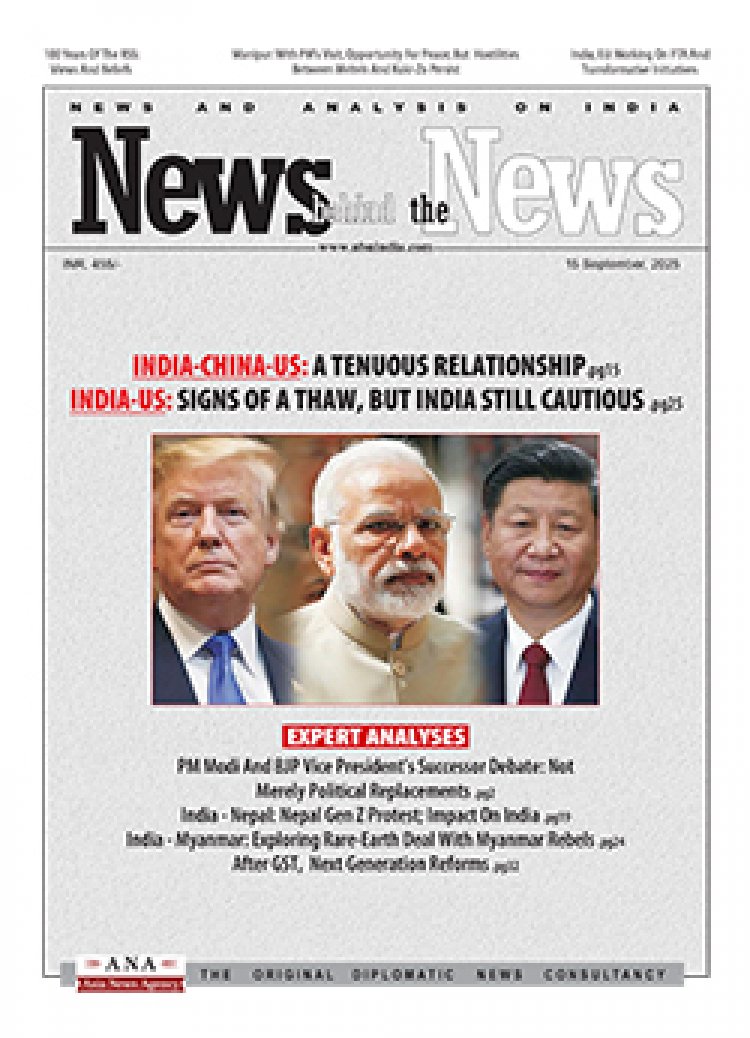India - Bangladesh: Election to be Held Sometime In April
STORIES, ANALYSES, EXPERT VIEWS

Under pressure from the army, Bangladesh’s political parties and the military and the Bangladesh Nationalist Party (BNP), interim government chief Muhammad Yunus has made an announcement that a general election will be held sometime in April 2026. The decision also appeared to be aimed at helping the student-led National Citizen Party (NCP) to strengthen itself for entering the electoral battlefield.
No end to uncertainty in Bangladesh
The announcement of elections in April, according to Nirupama Subramanian (independent journalist) “has hardly cleared the air of political uncertainty or suspicions about his intentions. For one, the Bangladesh National Party (BNP), the second largest political party in the country after the Awami League, has rejected the timeline, and reiterated its demand for elections before the end of this year. In this, it is on the same side as the army…..”
Yunus’ justification for his reluctance to hold polls earlier than next year is that when he took office, he promised to do three things: carry out constitutional, electoral and other institutional reforms through a process of national consensus; provide justice for those who were killed in police firing during the student protests that eventually led to Hasina’s exit; and conduct elections.
The argument, writes Subramanian “is that making the much-needed corrections to a broken political, governance and judicial structure would ensure that the elections did not reproduce the kind of one-party rule and authoritarian slide witnessed during Hasina’s three terms……”
No consensus on reform: Yunus set up six commissions to study each aspect and suggest changes. These commissions have duly submitted their reports. Now, a ‘national consensus commission’ of political parties’ representatives is trying to forge an all-round agreement on the reforms. “It is no surprise that the consensus is proving to be elusive,” says Subramanian.
Yunus may carry out all the reforms he wants, and may even take his time doing that. “But any claim of corrections to Bangladesh’s many problems will remain hollow, and their purpose defeated if the Awami League, hollowed out though it is, cannot take part in the elections. Banning the party and keeping it out of the elections can only widen the political and social faultlines. It is a sure path to the repetition of the many blunders committed by Hasina.”
Resurrection of the Jamaat-e-Islami: On the other hand, “there is resurrection of the Jamaat-e-Islami, which collaborated with the Pakistan Army in the atrocities committed in the months before the country’s liberation. The Jamaat was stripped of its registration as a political party and disallowed from participating in the 2013 elections….” Last month, Jamaat leader ATM Azharul Islam, who was tried and convicted as a collaborationist by the ‘International Criminal Court’ set up by the Hasina government, was acquitted.
While the trials of the Jamaat members were decried at the time as partisan and dubious, and the judicial proceedings as a kangaroo court, the irony is hard to miss, writes Subramanian. “An administration that says it wants to set Bangladesh on the right path is using the same court to try Hasina on charges of corruption and ‘crimes against humanity’ . Her trial, whose outcome is pre-determined, will take place in absentia. India is unlikely to accede to Bangladesh’s demand for her extradition. The issue will worsen relations between the two countries…..”
As such, “the transition to an elected government, whether it happens in April or earlier, is not going to bring political stability in Bangladesh.” Sreeradha Datta, who teaches international relations at Jindal Global University, and follows developments in Bangladesh closely, told Frontline in an interview that stability will be elusive until the political culture of that country changes.
The “silver lining is that there are people in Bangladesh who remember the liberation story only too well…..it is difficult to erase the memories of killings and rapes following Bangladesh’s March 1971 declaration of independence….”
















